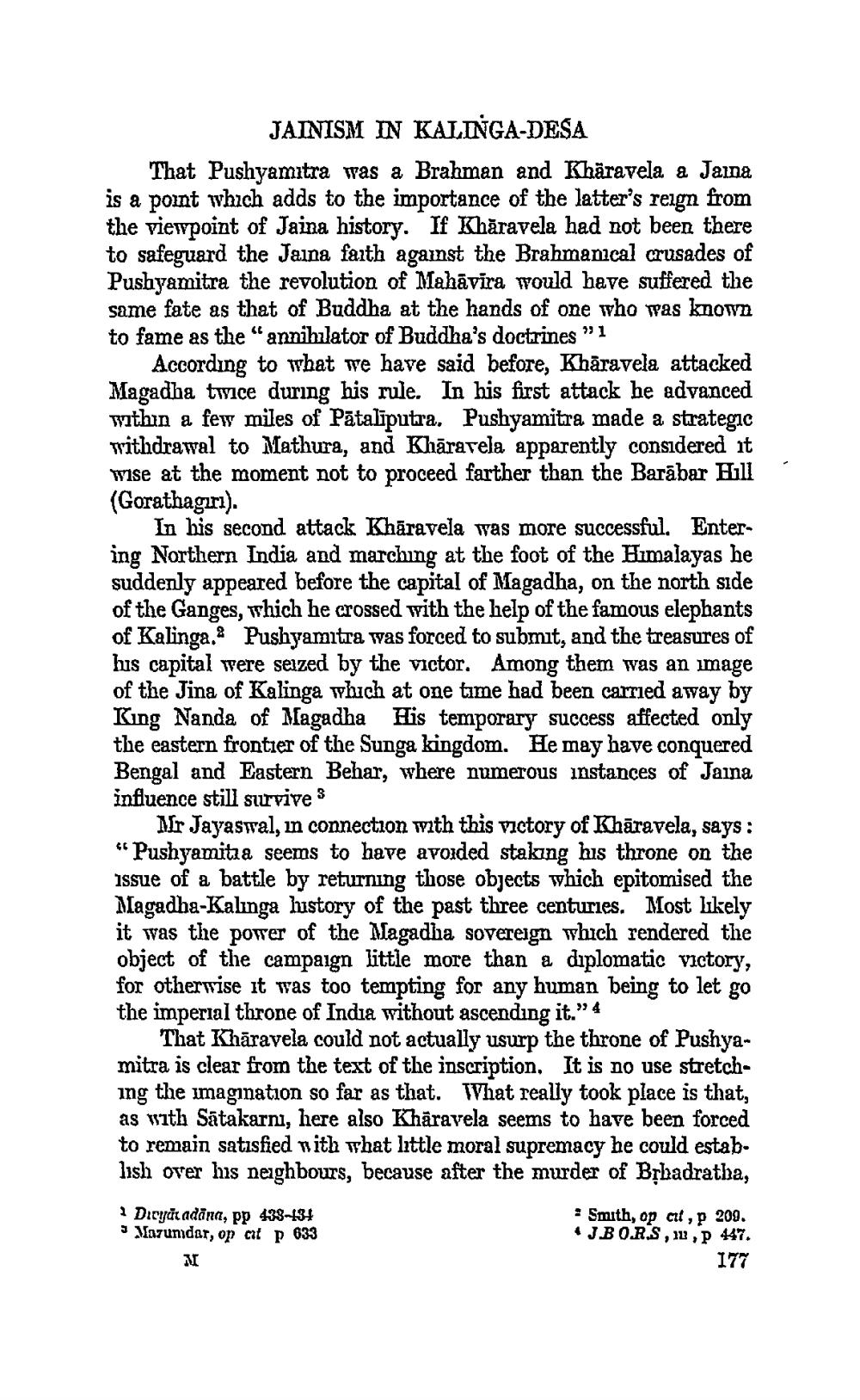________________ JAINISM IN KALINGA-DESA That Pushyamitra was a Brahman and Kharavela a Janna is a point which adds to the importance of the latter's reign from the viewpoint of Jaina history. If Kharavela had not been there to safeguard the Jaina faith against the Brahmanical crusades of Pushyamitra the revolution of Mahavira would have suffered the same fate as that of Buddha at the hands of one who Tas known to fame as the "annihilator of Buddha's doctrines "l According to what we have said before, Kharavela attacked Magadha twice during his rule. In his first attack be advanced within a few miles of Pataliputra, Pushyamitra made a strategic withdrawal to Mathura, and Kharavela apparently considered at Wise at the moment not to proceed farther than the Barabar Hill (Gorathagiri). In his second attack Kharavela was more successful. Entering Northern India and marching at the foot of the Himalayas he suddenly appeared before the capital of Magadba, on the north side of the Ganges, which he crossed with the help of the famous elephants of Kalinga. Pushyamitra was forced to submit, and the treasures of his capital were seized by the victor. Among them was an image of the Jina of Kalinga which at one time had been carried away by King Nanda of Magadha His temporary success affected only the eastern frontier of the Sunga kingdom. He may have conquered Bengal and Eastern Behar, where numerous instances of Jaina influence still survive 3 Mr Jayastal, in connection with this victory of Kharavela, says: "Pushyamitha seems to have avoided staking his throne on the issue of a battle by returning those objects which epitomised the Magadha-Kalinga history of the past three centuries. Most likely it was the power of the Magadha sovereign which rendered the object of the campaign little more than a diplomatic victory, for otherwise it was too tempting for any human being to let go the imperial throne of India without ascending it." 4 That Kharavela could not actually usurp the throne of Pushyamitra is clear from the text of the inscription. It is no use stretching the imagination so far as that. What really took place is that, as with Satakarni, here also Kharavela seems to have been forced to remain satisfied with what little moral supremacy he could establish over his neighbours, because after the murder of Bhadratha, Dictut adona, pp 439-434 Mazumdar, op cat p 633 * Smith, op cit, p 209. J.BORS, 1,P 447 177




